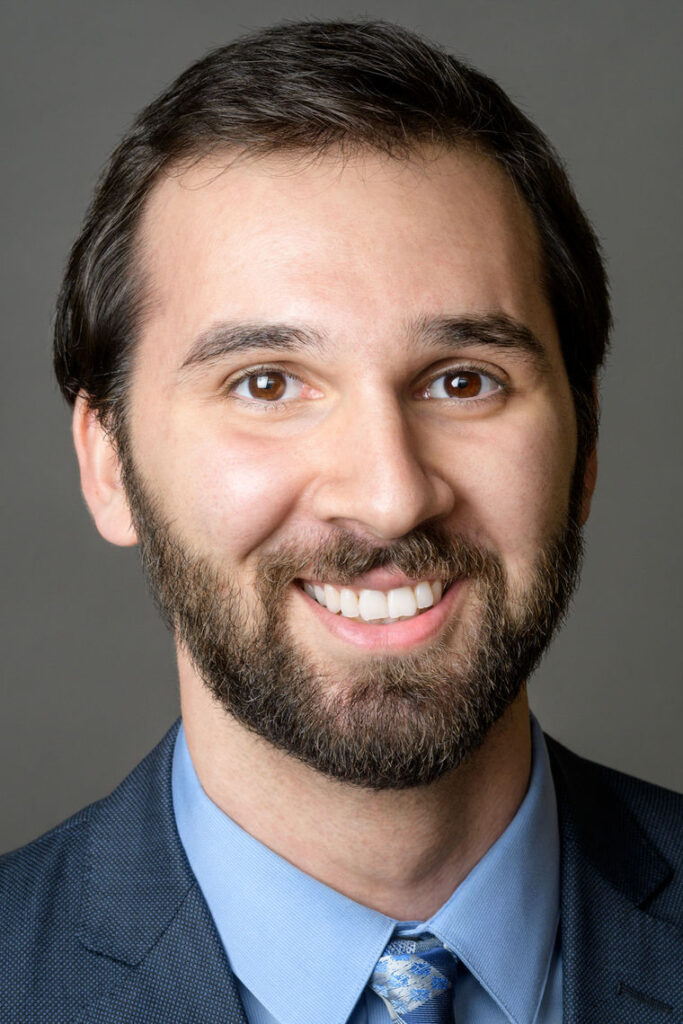- Fellow Highlights
Q&A: MD/PhD in Bioengineering Student Amin Aalipour Looks Back At The Fellowship
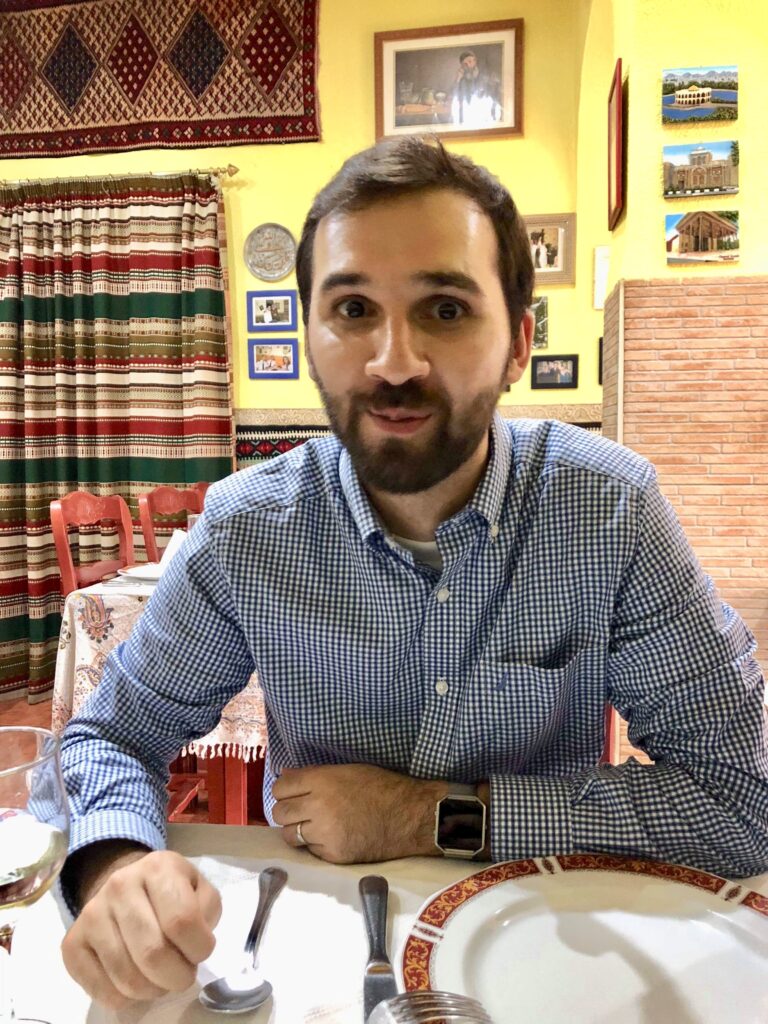
The Paul & Daisy Soros Fellowships for New Americans provides two years of funding for outstanding graduate students who are immigrants and children of immigrants. After two years the Fellows join a lifelong community of past Fellows. We asked Amin Aalipour, a 2017 Paul & Daisy Soros Fellow, to look back at the first two years of the Fellowship and what they have meant to him.
Raised in Southern California, Amin Aalipour is the son of Iranian Muslim immigrants who came to the United States in pursuit of higher education. Inspired by his parents’ struggles with financial hardship and his Muslim faith, Amin learned early on about the values of simplicity, fearlessness, and sacrifice. Amin earned his bachelor’s and master’s degrees in a combined four years, graduating first in his major and with highest honors from the School of Engineering. He also coauthored six publications, including three first-author papers, and earned the Barry Goldwater Scholarship for his work in the lab. Amin is currently an MD/PhD student at the Stanford University School of Medicine and is working to develop early cancer detection technologies and immunotherapies in the lab of Dr. Sanjiv Gambhir.
Why did you apply to The Paul & Daisy Soros Fellowships for New Americans?
The PD Soros Fellowships supported me during my PhD years of the MD-PhD program at Stanford University. There are many competitive fellowships and funding sources available to graduate students, but what made the PD Soros Fellowships stand out was its unique mission. Beyond just recognizing scholastic achievements, the PD Soros Fellowship emphasizes citizenship, conscientiousness, and social responsibility, which are values I was drawn to as an applicant. These values can be expressed in a variety of disciplines, and I also admired that the PD Soros Fellowship did not limit the type of graduate training it will support.
Who has inspired you from the Paul & Daisy Soros Fellowship community?
My cohort of PD Soros Fellows is one of the most inspiring group of individuals I have had the honor of getting to know. It’s humbling to be surrounded by peers who are deeply committed to making a difference in their respective fields while also retaining a strong sense of identity as New Americans and the responsibilities that come with that.
What advice would you give to someone who is thinking of applying to The Paul & Daisy Soros Fellowships for New Americans?
Start early. The application is deceptively brief, but the essays require a level of soul searching and reflection that will take time. Most of the time I spent on the application involved thinking about my identity, what influences helped shape it, how my identity guides my thinking and decision-making, and to what extent it helps define my goals. Even if I hadn’t been awarded the PD Soros Fellowship, taking the time to reflect on those questions would have still been worthwhile. I encourage everyone who is thinking about applying to thoroughly mull over these questions.
Where are you with your MD/PhD now? What’s next?
I just defended my PhD thesis a few weeks ago and am back in the MD program to start clinical rotations. The transition from lab back to clinic has been both a culture shock and immensely rewarding. As a basic science researcher, it’s easy to become lost in the minutia of your day-to-day experiments and lose sight of the end goal of your work: improving human health. Learning through your patients how medicine is practiced and seeing firsthand the types of innovations that are needed clinically can help refine and prioritize research questions in the lab. In the long run, I hope to do just that.
What does The Paul & Daisy Soros Fellowships for New Americans program mean to you?
This one’s easy. For me, the PD Soros Fellowship program has been a source of renewed motivation and commitment to my scientific and clinical goals, a space for reflection on the principles that help me live a purposeful life, and a welcoming community which shares a visceral bond stemming from shared values of diversity and pluralism. ∎
Keep Exploring
-
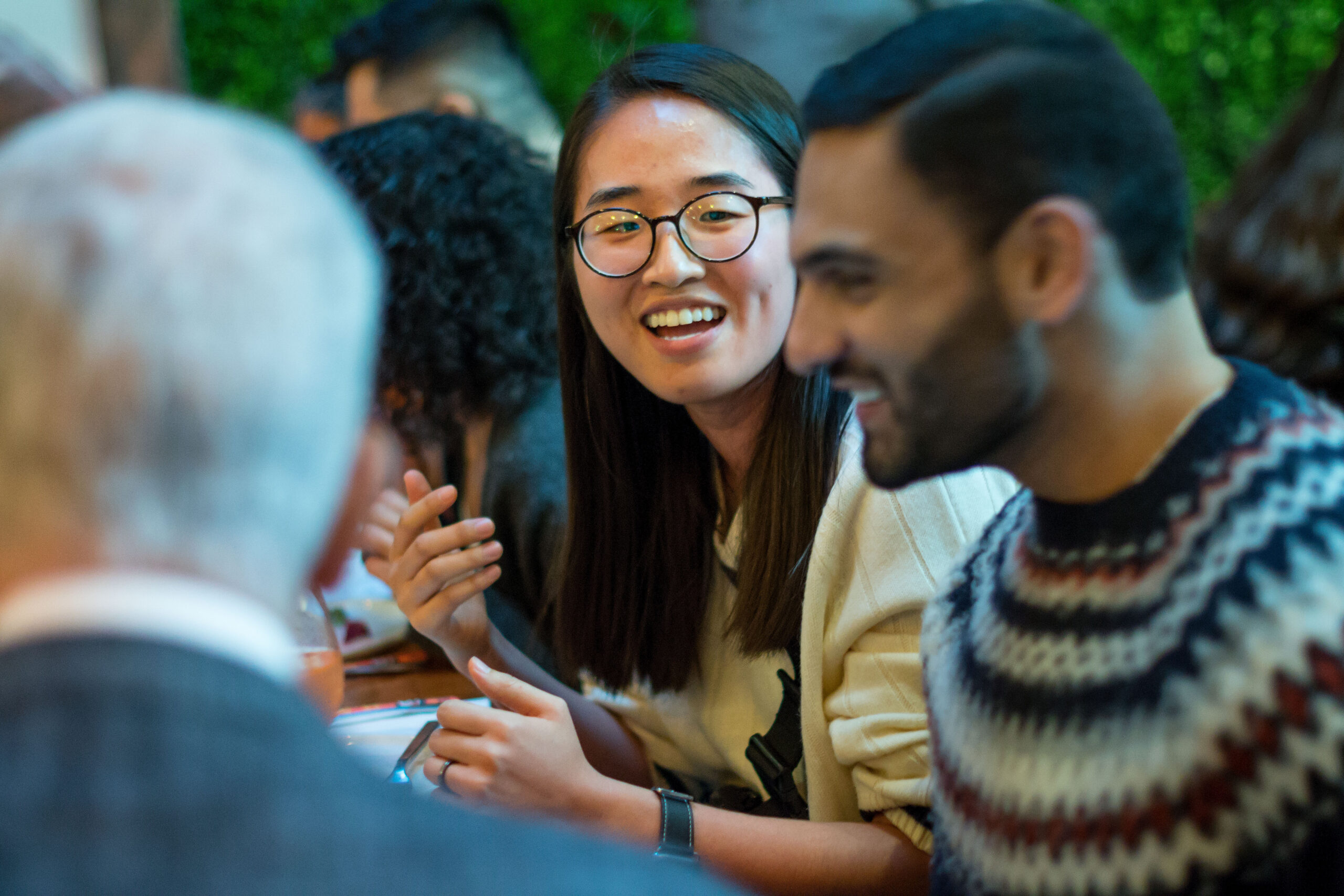 Read more: Kathy Ku Steps into Leadership as PDSFA Chair
Read more: Kathy Ku Steps into Leadership as PDSFA Chair- Board of Directors
- Fellowship News
Kathy Ku Steps into Leadership as PDSFA Chair
-
 Read more: Q&A with MD/PhD Student Silvia Huerta Lopez
Read more: Q&A with MD/PhD Student Silvia Huerta LopezQ&A with MD/PhD Student Silvia Huerta Lopez
-
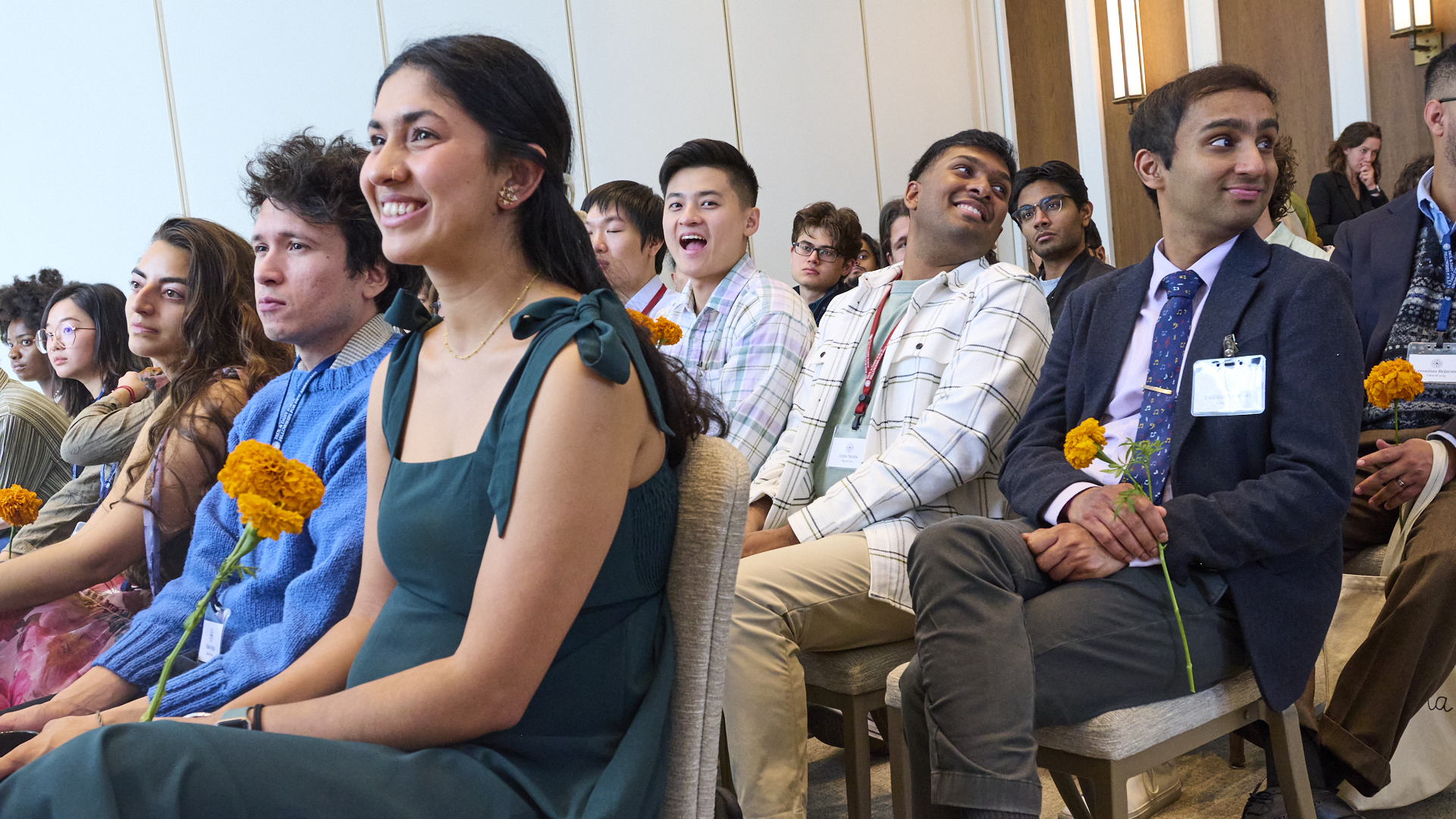 Read more: PD Soros Eligibility Guide for PhD Applicants
Read more: PD Soros Eligibility Guide for PhD Applicants- Applicant Information
PD Soros Eligibility Guide for PhD Applicants
-
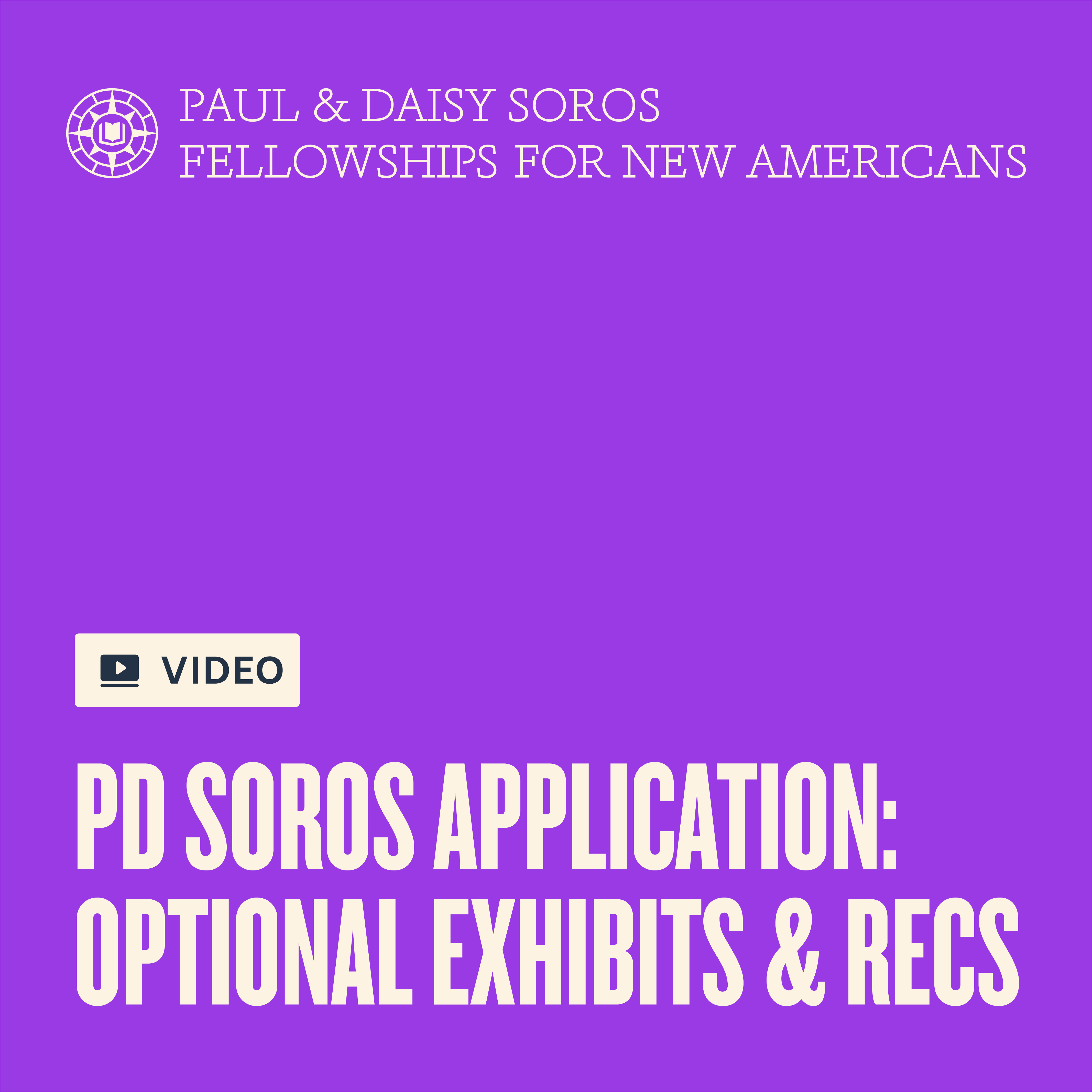 Read more: Watch: Optional Exhibits & Recommendations
Read more: Watch: Optional Exhibits & Recommendations- 2025 Information Sessions
Watch: Optional Exhibits & Recommendations
